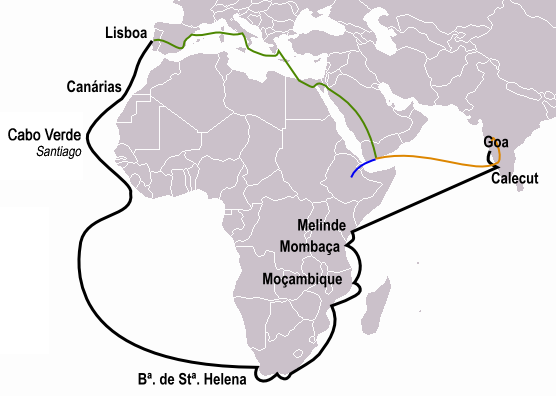The Long, Long Journey of Portuguese Explorer Pêro da Covilhã

King John II of Portugal (1455-1495) was set upon furthering the work of his great-uncle, Henry the Navigator, and to that end sponsored many of the key Portuguese voyages that unlocked the secret of blue-water navigation and allowed a small country on the far west of Europe to found the first global maritime empire. But King John did not just send ships: he sent spies as well.
In particular, he dispatched Pêro da Covilhã, a low-born but multilingual adventurer, with orders to find the origin of spices such as cinammon and to contact the legendary Christian king, Prester John. Covilhã, with letters of exchange to pay his way, made his way to Alexandria, the entry port to the Islamic world and then, passing himself off as a Muslim merchant, he made his way to Cairo and then on to Aden.
From there, he took ship on a dhow across the Indian Ocean, arriving in Calicut, India. Taking notes on the Indian Ocean spice trade, Covilhã then returned to Cairo where he met emissaries sent by John II, giving them his report.
Now apparently bit by wonderlust, Covilhã explored Arabia, even entering Mecca and Medina in disguise as a Muslim pilgrim, before venturing across the Red Sea to Mount Sinai.
Rather than return home, the indefatigable Covilhã headed to Ethiopia, the Christian kingdom in the heart of Africa and the probable source of the legends of Prester John. The ruler, Eskender, received Covilhã well but refused to let him leave, although Eskender allowed Covilhã to write back to his king.
Thirty years later, a Portuguese embassy arrived in Ethiopia and met their countryman, still living in the court of the kings of Ethiopia. Covilhã wept with joy to meet them but the king of Ethiopia, while treating Covilhã well, would not give him leave to depart. Eventually, Covilhã died there, far from home, a traveller to the end.
0 Comments